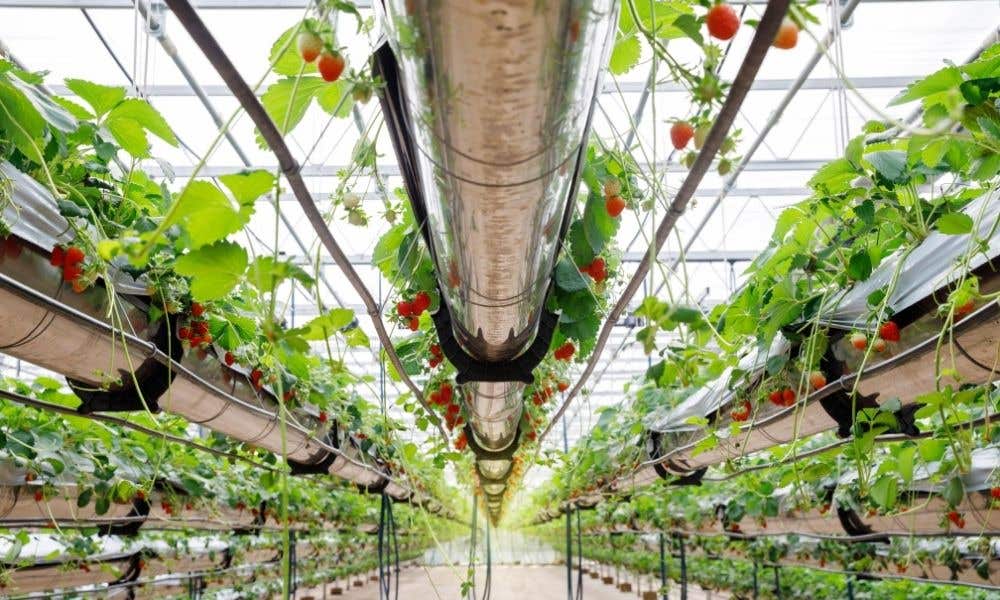Your plants are alive, and just as humans need to consume vitamins to stay healthy, plants also require special nutrients to thrive in your hydroponic garden. Plants can’t survive on just sunshine and water; without the food they normally get from soil, they will starve. You can figure out which nutrients to feed your plants with our guide to hydroponic nutrients. It may seem like complicated chemistry, but it comes down to just a few categorized elements.
Macronutrients for Big Blooms
Besides the necessary elements they get from sunshine, air, and water, your plants also crave some other essential elements. There are three important “growing” elements, or macronutrients, that you will need to feed to your plants in large quantities: nitrogen (N), phosphorous (P), and potassium (K).
Nitrogen
Nitrogen is one of the most important elements for any plant. You’ll use a lot of nitrogen when starting up your plants, as it’s a key nutrient for early growth. It stimulates the creation of chlorophyll and other cell growth inside your plants to keep them healthy and green.
Phosphorous
Essential for photosynthesis and cell production, phosphorous is a large part of the early growth of your plants. It’s also essential for later growth and flowering, but it has less of a presence after the plant matures, and you’ll need to mix it in accordingly.
Potassium
Last on the list of fundamental macronutrients is potassium. Just as it helps our bodies, potassium stimulates the overall health of your plants. It also helps with the reproduction in your plants, giving you bigger blooms.
In addition to the big three up above, it’s important to ensure your nutrient mix includes smaller amounts of calcium (Ca), magnesium (Mg), and sulfur (S) to promote positive health and cell growth.
Micronutrients in Careful Quantities
The following elements, while necessary to a plant’s development, must be measured accurately to follow state-wide gardening metal restrictions. You won’t need as many micronutrients as macronutrients, as a little bit goes a long way. Necessary micronutrients include boron (B), copper (Cu), iron (Fe), manganese (Mn), molybdenum (Mo), and zinc (Z).
Boron
Working with calcium for cell membrane production, boron is also important for the growth of healthy roots and seeds.
Copper
Copper enables nitrogen to do its job and improves the flavors of your fruits.
Iron
Acting as a metallic carrier for oxygen, iron helps with chlorophyll production and energy through photosynthesis.
Manganese
Manganese works with both calcium and phosphorous to aid in energy production.
Molybdenum
Molybdenum enables nitrogen and helps with the consumption of phosphorous.
Zinc
Plants need zinc to produce chlorophyll and to mature at the correct pace.
If this guide to hydroponic nutrients makes mixing everything yourself seem overwhelming, an organic hydroponic fertilizer mix from FloraFlex will be your key to easily and accurately blending healthy organic feed for your plants while simplifying your gardening routine.

















